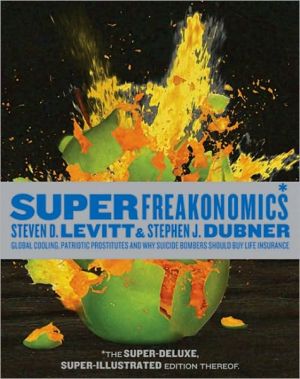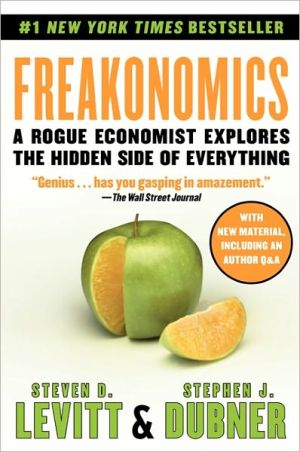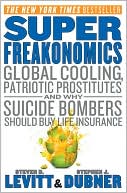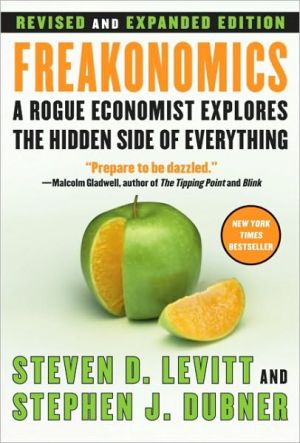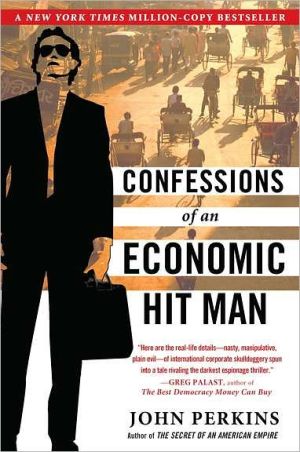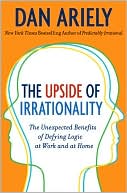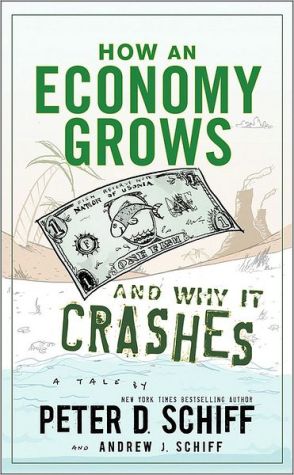SuperFreakonomics: Global Cooling, Patriotic Prostitutes, and Why Suicide Bombers Should Buy Life Insurance (Illustrated Edition)
Seeing is believing . . . The Smash Hit SuperFreakonomics is now Bigger and Better\ \ SuperFreakonomics was an instant New York Times bestseller that caused a media uproar, continuing the amazing success begun with the groundbreaking, worldwide sensation Freakonomics.\ With the Illustrated Edition, Steven D. Levitt and Stephen J. Dubner bring alive their smart thinking and great storytelling with an explosion of visual evidence, including:\ \ A by-the-numbers tally of a high-priced call...
Search in google:
The New York Times best-selling Freakonomics was a worldwide sensation, selling over four million copies in thirty-five languages and changing the way we look at the world. Now, Steven D. Levitt and Stephen J. Dubner return with SuperFreakonomics, and fans and newcomers alike will find that the freakquel is even bolder, funnier, and more surprising than the first. Four years in the making, SuperFreakonomics asks not only the tough questions, but the unexpected ones: What's more dangerous, driving drunk or walking drunk? Why is chemotherapy prescribed so often if it's so ineffective? Can a sex change boost your salary? SuperFreakonomics challenges the way we think all over again, exploring the hidden side of everything with such questions as: How is a street prostitute like a department-store Santa? Why are doctors so bad at washing their hands? How much good do car seats do? What's the best way to catch a terrorist? Did TV cause a rise in crime? What do hurricanes, heart attacks, and highway deaths have in common? Are people hard-wired for altruism or selfishness? Can eating kangaroo save the planet? Which adds more value: a pimp or a Realtor? Levitt and Dubner mix smart thinking and great storytelling like no one else, whether investigating a solution to global warming or explaining why the price of oral sex has fallen so drastically. By examining how people respond to incentives, they show the world for what it really is—good, bad, ugly, and, in the final analysis, super freaky. Freakonomics has been imitated many times over—but only now, with SuperFreakonomics, has it met its match. Publishers Weekly Economist Levitt and journalist Dubner capitalize on their megaselling Freakonomics with another effort to make the dismal science go gonzo. Freaky topics include the oldest profession (hookers charge less nowadays because the sexual revolution has produced so much free competition), money-hungry monkeys (yep, that involves prostitution, too) and the dunderheadedness of Al Gore. There’s not much substance to the authors’ project of applying economics to all of life. Their method is to notice some contrarian statistic (adult seat belts are as effective as child-safety seats in preventing car-crash fatalities in children older than two), turn it into “economics” by tacking on a perfunctory cost-benefit analysis (seat belts are cheaper and more convenient) and append a libertarian sermonette (governments “tend to prefer the costly-and-cumbersome route”). The point of these lessons is to bolster the economist’s view of people as rational actors, altruism as an illusion and government regulation as a folly of unintended consequences. The intellectual content is pretty thin, but it’s spiked with the crowd-pleasing provocations—“'A pimp’s services are considerably more valuable than a realtor’s’” —that spell bestseller. (Nov.)
An Explanatory Note xiiiIntroduction: Putting the Freak in Economics 11 How Is a Street Prostitute Like a Department-Store Santa? 262 Why Should Suicide Bombers Buy Life Insurance? 813 Unbelievable Stories About Apathy and Altruism 1394 The Fix Is in-and It's Cheap and Simple 1905 What Do Al Gore and Mount Pinatubo Have in Common? 235Epilogue: Monkeys Are People Too 301Acknowledgments 309Notes 313
\ From Barnes & NobleMost survivors of Economics 101 leave the course feeling no great urgency to pick up a book on the subject as leisure reading. One very unconventional book changed that: Steven D. Levitt's 2005 Freakonomics became an international bestseller, racking up sales of more than four million copies. Fans have waited eagerly for this follow-up and, fortunately, it doesn't disappoint. Like its predecessor, SuperFreakonomics explores "the hidden side of everything." In this case, the roster of improbable topics includes the similarities between streetwalkers and department store Santas; the most effective ways to catch terrorists; whether eating kangaroos can save the planet; correlations between television viewing and crime; and whether we're hardwired for altruism and selfishness.\ \ \ \ \ Publishers WeeklyEconomist Levitt and journalist Dubner capitalize on their megaselling Freakonomics with another effort to make the dismal science go gonzo. Freaky topics include the oldest profession (hookers charge less nowadays because the sexual revolution has produced so much free competition), money-hungry monkeys (yep, that involves prostitution, too) and the dunderheadedness of Al Gore. There’s not much substance to the authors’ project of applying economics to all of life. Their method is to notice some contrarian statistic (adult seat belts are as effective as child-safety seats in preventing car-crash fatalities in children older than two), turn it into “economics” by tacking on a perfunctory cost-benefit analysis (seat belts are cheaper and more convenient) and append a libertarian sermonette (governments “tend to prefer the costly-and-cumbersome route”). The point of these lessons is to bolster the economist’s view of people as rational actors, altruism as an illusion and government regulation as a folly of unintended consequences. The intellectual content is pretty thin, but it’s spiked with the crowd-pleasing provocations—“'A pimp’s services are considerably more valuable than a realtor’s’” —that spell bestseller. (Nov.)\ \ \ Kirkus ReviewsA sequel to the megaselling Freakonomics (2005). It's not exactly economics for dummies-or, as Levitt (Economics/Univ. of Chicago) and business journalist Dubner (Confessions of a Hero-Worshiper, 2003, etc.) write, "Chicken Soup for the Freakonomics Soul"-but this follow-up is certainly more of the same, a relentlessly enthusiastic cheer for the application of the dismal science to everyday life. That is, everyday life as the world knows it, as when Levitt and Dubner explore some of the curious economic questions on the underside of terror bombings. Econometrics can be a soulless and sometimes divisive business, so the authors may incite some controversy with their report that in the UK, "a person with neither a first nor last Muslim name stood only a 1 in 500,000 chance of being a terrorist," whereas for a person with both first and last Muslim names the odds went to 1:2,000. (They add, however, that the odds scale way back if the person has a savings account and a life-insurance policy.) Less controversial, perhaps, is their look at the economics of prostitution, with some surprising findings-not least that the average street hooker in Chicago earns only $27 an hour and works only 13 hours a week, drawing about $350 a week. They're priced out of the market, the ever-provocative authors assert, by women willing to have sex for free. The authors also write that it's safer to travel by car than by most other means of transport, thanks in part to no less a personage than Robert S. McNamara, and by far less safe to walk drunk than to drive drunk. The authors' view of the climate crisis through an economic lens is similarly spirited, but certainly worth adding to the debate. Jaunty,entertaining and smart. Levitt and Dubner do a good service by making economics accessible, even compelling. Agent: Suzanne Gluck/William Morris Endeavor\ \
